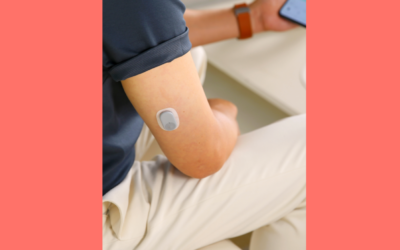By Pash Sonigra on January 5, 2023
Spirit Health and HSJ came together to drill down further into the opportunities for medicines optimisation in this new operating environment.
The featured presenters for the event included:

Edward Jones, Senior Policy Advisor, NHS Confederation
Edward Jones is a senior policy advisor in the NHS Confederation’s ICS Network, where he leads on medicines policy commissioning, finance and governance. He co-authored the Confed’s ‘The systematisation of medicines optimisation’ report in 2021, exploring how medicines optimisation might be prioritised and improved by integrated care systems.

Mildred Johnson, Clinical Director of Pharmacy and Medicines Optimisation, Maidstone and Tunbridge Wells Trust
Mildred’s career as a registered hospital pharmacist spans 25 years, during which time she has been involved in high profile pharmacy service redesigns and service development projects. Alongside her trust role she is chair of the Kent Surrey and Sussex Chief Pharmacists and Medicines Management Leads network.
 Ewan Maule, Director of Medicines and Pharmacy, North East & North Cumbria ICB
Ewan Maule, Director of Medicines and Pharmacy, North East & North Cumbria ICB
He is an elected member of the English Pharmacy Board of the Royal Pharmaceutical Society. Ewan’s career has seen him work in a variety of roles in community pharmacy, acute care and mental health, before moving into commissioning in Sunderland CCG and most recently into this role in integrated care.
 Chris Barker, Chief Executive, Spirit Health Group
Chris Barker, Chief Executive, Spirit Health Group
Chris is proud to work alongside an amazing group of people at Spirit Health Group, with a mission to make health easy for both citizens and healthcare services. He is passionate about medicines optimisation and proud of the work Spirit delivers that makes complex processes simple, ensuring improved patient outcomes and helping the NHS be more efficient.
The potential of medicines optimisation within an integrated care system (ICS)
In a nutshell, Edward outlined, ‘For ICSs to successfully undertake their function, medicines optimisations have to be at the heart of that. ICSs allow us to go further and faster on medicines optimisation’.
A point Mildred homed in on was the ethos of ‘One team’. All the speakers throughout the event echoed this point. Mildred further highlighted that within the new ICS perimeters, ‘It is a time for us to start thinking at scale. ‘Scale’ should be the norm, and we should move away from solely thinking about our local organisations.’
Ewan touched upon the evolution from competition to collaboration. ‘Historically, teams were told that competition is the way to drive efficiencies. Through the exciting formation of an ICS however, collaboration is key. They bring together many different partners, not just at the ICB level but through other parts of the system like local authority and community pharmacists.’
He added, ‘As medicine spend is high, variable and volatile, even within the new organisation structure, it doesn’t take much for medicines optimisation to be boosted high on the corporate agenda.’
Patient role and value
‘Medicines span the entire patient pathway.’ Many medicines are prescribed in primary and secondary care, then dispensed by community pharmacists and administered through social care.’ Importantly, Ewan points out, ‘the patient is the only thing that runs all the way through that.’
Edward and Chris pointed out that fundamentally medicines optimisation is about ‘Getting the right medicines to the right patients at the right time to achieve the right outcomes.’ Chris continued, ‘How can we get the best use of medicines and get better outcomes for patients across that system and make that NHS pound that we’re spending become the best possible value that it can be for individuals?’
When it comes to value, however, how can this be measured, especially within an ICS? Mildred approached this by defining operational value in terms of the work you put into each task and using evidence-based interventions. ‘In medicines, you get more value depending on what you’ve prescribed and what you’re putting into the delivery structure. Effort and value go hand in hand.’
Edward adds, ‘We don’t think enough of – if we give this medicine to this person at this time, how much money we could save down the line by reducing potentially avoidable hospital admissions’.
Ewan notes, ‘Over the past couple of decades, the NHS has become increasingly efficient with shorter appointments and virtual appointments, but through this, we have lost what the patient actually values.’
Profoundly, it was agreed that the patient role throughout the whole system should align with what the patient values, which in turn should be what we value. Ewan adds, ‘A rebalance needs to be undertaken on how we value input. Input isn’t the quickest and cheapest we can do something. It’s the most effective way we can do something, which may mean listening and taking more time with patients.’
Pharmacy within the ICS
As the ICS structure starts to settle, Mildred gave us insight into what happened before it was in place. ‘Between 2017 and 2019, Pharmacy leaders had the Sustainable Transformation Programme, which created the foundation for collaborative work; pharmacy leaders came together and worked as one team. These pharmacy leaders started sharing good practise, and as we saw during the pandemic, it was these early-year partnerships working together that made the Covid vaccine rollout so successful, as they had already started building those bridges together.’
This is a fundamental point in advocating shared leadership and collaboration practice.
Mildred adds that in an era of ICS level medicines optimisation, ‘When it comes to workforce it is tricky. For example, in hospitals, we need pharmacists who can commit to ‘out of office’ hours whilst in general practice schedules are much more structured.’ The disparity in the pharmacy role causes variation.
In the future, both Mildred and Ewan recognised that there is an opportunity to offer pharmacists more variety in their early careers. ‘It’s part of fostering that culture of one team’, Ewan adds. ICS’s medicines optimisation teams can benefit from giving pharmacists the freedom to choose, as this could address the skills shortage in parts of the system.
Ewan points out, ‘ Pharmacists are in a great position right now as they can pick and choose where they want to work and build up a lot of varying sector expertise.’ The term ‘portfolio career’ is in place to identify those who have yet to choose their speciality.
The importance of data
One of the main components of successful medicines optimisation within an ICS is data. Edward lists digital data and technology as one of the five main components on the current roadmap ICSs are working towards. What does ‘data’ mean for an ICS as we advance? Ed continues that the NHS Confed define this as ‘the sharing of data and pharmacy records across different settings and electronic prescribing.’
It has long been evident that data is a tool that medicines optimisation teams need to become fluent in. Analysing prescribing trends, addressing population health and rebalancing health equalities can only be definitively highlighted through data.
Chris emphasised data within the practice of medicines optimisation by asking, ‘How can we utilise data and the information within those systems to effectively look at outcomes?’. Secondly, ‘There is a lot of data in the NHS, but trying to gain insights can be challenging. There are now data sources we can access and share – but collecting individual user experience as part of projects is extremely useful.’
Data is a buzzword within our industry, but all the panellists touched upon the importance of patient choice and impact. The question around data needs to be not only on the accuracy and reliance of the figures but also on how measurable is the responsiveness of the NHS to patients’ needs.
What’s next
At Spirit Health, we are continually talking to our NHS partners to explore future opportunities and events where we can share understandings, lived experiences and lessons learned.
Through delivering these industry-specific events, we remain on the pulse of what’s important to you. From the webinar topics to the audience questions and comments, we at Spirit will use these insights to fine-tune our medicines optimisation offering.
Would you like to stay ’in the know’ with news from us? Sign up for our newsletter here
Virtual Roundtable
It’s important for us to provide those working within medicines optimisation, a platform for inclusive and continual conversation. As highlighted above, many of the topics raised are common to teams throughout the UK. To move forward successfully, there is a need for us to embrace collaboration.
Our next medicines optimisation specific event is a virtual roundtable event on the 19th of January, 2023, and we are currently recruiting delegates. The roundtable theme is:
Building medicines optimisation for the future – exploring lessons learned from a pandemic and new ways of working as we settle into the new ICS landscape.
Now it’s your turn – have your say. Click here to learn more and register your interest.
Get in touch today
Working with medicines optimisation teams to deliver programmes specific to them is what we do best.
We work as an extension to your team, but with all the built-in resource you need to deliver change. So, whatever your priorities or challenges may be and wherever you are within the process, we will work with you to tackle your challenges head on.
It all starts with a conversation with your needs at the heart of it.
Get in touch with us today to start the ball rolling on turning your medicines optimisation ambitions into a reality. Email us at meds-op@spirit-health.com or fill in the contact form.
To watch the full webinar recording, please follow this link.


